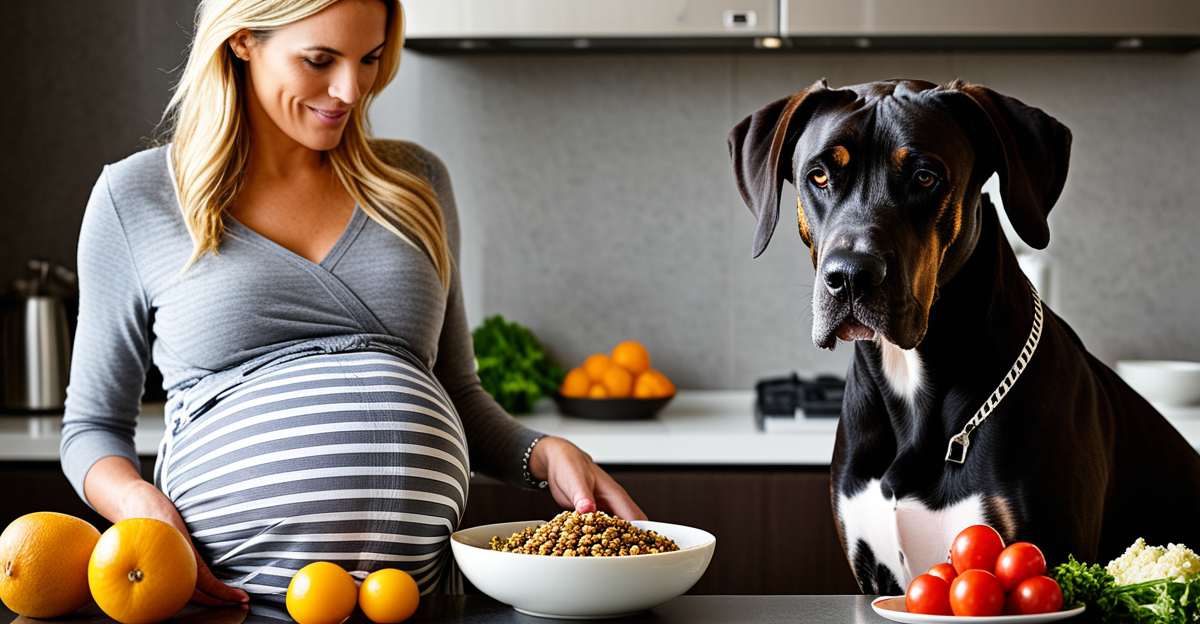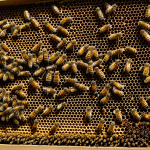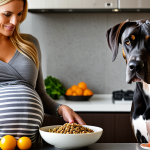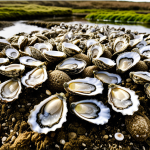Essential Nutritional Requirements for Pregnant Great Danes
Pregnant Great Danes have unique nutritional demands that must be met with a breed-specific feeding guideline to support both maternal health and fetal development. The foundation of a proper canine prenatal diet includes a precise balance of macronutrients and micronutrients. Protein intake should be elevated to promote muscle growth and tissue repair, critical for the larger size of Great Dane litters. Essential fatty acids, like omega-3s, contribute to neurological development in puppies, while calcium and phosphorus levels must be carefully managed to avoid skeletal complications.
Calorie control is equally crucial; pregnant Great Danes require increased energy, but overfeeding can lead to obesity, complicating gestation and delivery. The diet must maintain nutrient density, providing enough calories without unnecessary weight gain. Meals formulated with a balance of proteins, fats, and carbohydrates optimize nutrient absorption and enhance digestion throughout pregnancy.
Understanding the interplay of these elements in a Great Dane pregnancy nutrition plan ensures that both mother and pups receive adequate nourishment. Tailored feeding based on gestational needs prevents nutrient deficiencies that could impact reproductive health. Employing these focused dietary strategies promotes successful pregnancies and supports the demanding physiological changes occurring during gestation.
Nutritional Changes Through Every Stage of Pregnancy
Pregnancy in Great Danes involves distinct phases, each with changing nutritional needs crucial to fetal health and maternal well-being. During the Great Dane pregnancy stages, the first trimester requires modest calorie increases; overfeeding is unnecessary here but high-quality proteins support early embryonic growth. In the second trimester, calorie needs rise significantly to fuel rapid puppy development and maternal tissue expansion. By the third trimester, energy demands peak, and nutrient-rich meals help sustain both mother and litter.
Also to read : Effective Techniques to Ease Separation Anxiety in Boxers Left Home Alone for Extended Periods
Adjustments for a trimester-specific diet include increasing portion sizes steadily rather than sudden jumps. Protein intake should progressively rise as pregnancy advances to support muscle growth and milk production preparation. Monitoring food quality is vital—digestibility and nutrient density help avoid digestive upset while meeting increased nutrient requirements.
To ensure adequate intake, watch for signs like consistent weight gain aligned with veterinary expectations, steady appetite, and proper hydration. Sudden appetite loss or weight stagnation may indicate nutritional gaps needing correction. In summary, tailoring food quantity and quality across the Great Dane pregnancy stages safeguards optimal development and maternal health, making the diet as dynamic as the pregnancy itself.
Recommended Foods and Safe Supplements
Selecting the best foods for pregnant Great Danes is crucial to meet their elevated nutritional demands. High-quality protein sources such as lean chicken, turkey, eggs, and fish provide essential amino acids crucial for fetal growth and maternal tissue repair. Complex carbohydrates like brown rice and sweet potatoes supply steady energy, while healthy fats, including fish oil and flaxseed, ensure adequate omega-3 fatty acids for neurological development.
In a balanced canine prenatal diet, safe supplements play a vital role where dietary gaps exist. Canine prenatal vitamins typically include folic acid, vitamin E, and B-complex to support reproduction and immune function. Calcium and phosphorus supplements are appropriate only under veterinary advice to prevent skeletal imbalances. Adding safe dog supplements like probiotics can enhance digestion and nutrient assimilation during the increased feeding demands of pregnancy.
It’s important to avoid foods and supplements that may cause toxicity or digestive upset. For example, excessive vitamin A or unregulated herbal products can harm both mother and puppies. Careful selection, focusing on veterinarian-approved canine prenatal vitamins and supplements, ensures pregnant Great Danes receive comprehensive nutrition without risk. Practical feeding combining natural foods and targeted supplementation supports a thriving pregnancy and prepares the dog for successful whelping.
Feeding Schedules and Portion Control
Establishing an effective feeding schedule for pregnant dogs is essential to support digestion and maintain steady energy levels throughout pregnancy. Great Danes, with their large frame and specific portion size guidelines, benefit from multiple smaller meals daily rather than one or two large feedings. This approach reduces the risk of gastric dilatation-volvulus (bloat), a serious concern in giant breeds.
As pregnancy advances, gradual adjustments to portion sizes are necessary. Early gestation requires only slight increases, while the third trimester demands significantly larger portions to meet rising energy needs. It is advisable to increase meal frequency from two to three or four times daily, accommodating the smaller stomach capacity caused by growing fetuses.
Meal timing for Great Danes should aim for consistency, serving meals at regular intervals to support metabolism and avoid digestive upset. Monitoring appetite and body condition helps refine portion control. If your pregnant Great Dane shows declining appetite or weight stagnation, consult a veterinarian promptly to adjust the feeding plan.
Thoughtful scheduling balances nutrition intake with digestive health, enhancing comfort during pregnancy and preparing the dog for the energy demands of whelping and lactation.
Common Dietary Issues and Practical Solutions
Pregnant Great Danes often face gestational digestive problems, including nausea, decreased appetite, or constipation. These issues commonly arise due to hormonal changes and the physical pressure of growing puppies on the digestive tract. Managing poor appetite involves offering highly palatable, nutrient-dense foods in smaller, frequent meals to encourage regular eating without overwhelming the stomach.
Obesity risk is a significant concern during pregnancy, as excessive weight gain can lead to complications during whelping. Adhering to portion size guidelines and carefully monitoring calorie intake helps prevent overfeeding. If a dog gains weight too rapidly or shows signs of lethargy, adjusting the diet to maintain balanced calories is essential.
Nutrient deficiencies or imbalances may manifest as poor coat condition, lethargy, or irregular weight changes. These can be addressed by incorporating safe dog supplements, such as canine prenatal vitamins prescribed by a veterinarian, and ensuring the diet remains rich in essential amino acids, vitamins, and minerals.
Practical strategies to encourage healthy eating include varying protein sources to maintain interest, adding warm water or broth to dry food for aroma enhancement, and closely watching for behavioral cues signaling distress or discomfort. Early intervention with nutrition troubleshooting improves outcomes for both dam and puppies.
Vet-Recommended Diet Adjustments and Monitoring
Regular veterinary checkups are critical for managing a pregnant Great Dane’s nutrition effectively. Veterinarian advice for pregnant Great Danes helps tailor dietary plans based on individual health and breeding progress. During visits, vets assess weight gain, body condition, and fetal development to ensure alignment with pregnancy diet tips grounded in the breed’s unique needs.
Monitoring weight is essential; excessive gain can signal overfeeding, while inadequate gain may indicate nutritional insufficiency. Vets recommend adjusting portion sizes or meal frequency accordingly, ensuring the diet supports both maternal health and puppy growth without risk of obesity or malnutrition.
A clear sign that diet modification is necessary includes appetite changes, digestive issues, or irregular weight trends. In such cases, consultation allows for precise recalibration of the feeding schedule for pregnant dogs and introduction of appropriate supplements. This ongoing supervision ensures the canine prenatal diet remains balanced throughout the gestation stages.
In summary, proactive veterinary involvement guides changes that maintain optimal Great Dane pregnancy nutrition. This collaborative approach fosters healthy outcomes for both mother and litter by continuously adapting the feeding regimen based on expert assessment and health monitoring.
Essential Nutritional Requirements for Pregnant Great Danes
Pregnant Great Danes demand a canine prenatal diet tailored through precise breed-specific feeding guidelines. This diet prioritizes macronutrients critical for robust fetal and maternal health. Protein intake must increase significantly, supplying essential amino acids for muscle growth and fetal tissue development unique to this large breed.
Micronutrient balance is equally vital. Calcium and phosphorus levels require careful management to prevent skeletal disorders common in Great Dane pregnancies. Omega-3 fatty acids support neurological growth in puppies, making inclusion of these fats indispensable in the Great Dane pregnancy nutrition plan.
Calorie control maintains maternal energy without excessive weight gain, a frequent concern in large breeds prone to obesity. Meals should balance proteins, fats, and carbohydrates to ensure nutrient density, optimizing absorption and supporting the growing litter’s demands.
By integrating these nutritional foundations into a canine prenatal diet, owners can meet the complex needs of Great Danes during pregnancy. This approach sustains health through gestation, mitigates risk of complications, and promotes healthy fetal development—key outcomes of breed-specific feeding guidelines designed for this giant breed.
Essential Nutritional Requirements for Pregnant Great Danes
Pregnant Great Danes require a canine prenatal diet carefully tailored through breed-specific feeding guidelines to meet their unique gestational needs. Key macronutrients such as protein play a pivotal role, with increased intake supporting fetal tissue development and maternal muscle maintenance. Adequate protein provides the essential amino acids crucial for both the dam and growing puppies.
Micronutrients must be balanced precisely. Calcium and phosphorus support skeletal development but must be administered under guidance to prevent complications like eclampsia or bone disorders. Omega-3 fatty acids are indispensable within Great Dane pregnancy nutrition for promoting neurological growth in offspring.
Calorie control also remains critical. Too many calories risk obesity, complicating pregnancy, while insufficient energy affects fetal growth. Balanced meals combining appropriate proportions of protein, fats, and carbohydrates ensure nutrient density, optimizing digestion and energy use.
Owners should emphasize nutrient-rich meals following breed-specific feeding guidelines that evolve as pregnancy progresses to support maternal health and litter vitality. Adjustments in nutrient quality and quantity must reflect the dynamic needs of pregnant Great Danes, making an expert-informed canine prenatal diet vital for successful gestation.









